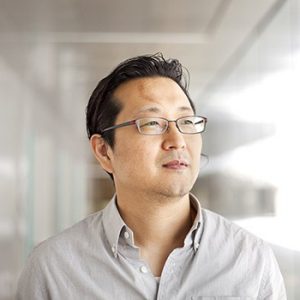There is no denying that publications are an important cornerstone of an academic’s career. But, there is a burgeoning group of researchers looking beyond publications. Prof. SangHyun Lee (Civil and Environmental Engineering at University of Michigan) is one of those researchers.
“I saw there were some workshops introducing faculty and researchers to I-Corps, and I thought it was cool to see how the research we’d been doing could be applied to the real world,” said Lee. “I was looking at the seminars and thought I would try. I wanted to see what they looked like and if it could also be applied to my research.”
The I-Corps program, funded by the National Science Foundation, helps researchers take their innovative ideas from the laboratory into the market through commercialization. I-Corps, which has programs at the local and regional level as well as nationally, teaches researchers how to assess the impact of their research in the real world and determine potential market opportunity.
Shortly after Lee, whose research focuses on sensorless motion capture technology, discovered the program, he signed up and attended a workshop with the University of Michigan College of Engineering.

Prof. SangHyun Lee, founder of Kinetica Labs, attended both a local University of Michigan I-Corps program and the National I-Corps program.
“They asked me to interview 20 to 30 people. It was very fun and I quite enjoyed the process, so I decided to go to the National program,” said Lee.
Lee discovered through the initial sample size of interviews that trying to apply his team’s research to the field they thought was their target audience, the construction industry, was a no-go at that time. So, his team pivoted and found that the manufacturing area had an immediate need their innovation could address.
Enjoying the I-Corps process and making this new market discovery led Lee to participate in the larger National I-Corps program, which pairs teams with industry mentors. Lee’s team, consisting of himself and his PhD student (who is now a professor at Hong Kong Polytech), met on a regular basis with their mentor to discuss their target market, the positioning of the product, and its benefits over competitors.
Going through the program helped Kinetica Labs, which he founded, find success. Lee said that the process changed the way he and his team do research.
“When I did research before I-Corps, I cared mostly about the science, how things worked, and how they could be improved. I needed that information to create more academic products like publications,” Lee explained. “What is missing in literature? What are the knowledge gaps? After I-Corps, I take into account what is missing in our society, how my research can be applied to the real world, and what the impact on society is.”
Before I-Corps, Lee considered publishing research for dissemination of knowledge his primary goal. But now he feels like publishing a paper isn’t everything.
“Prior to I-Corps, I lived in my cave, in my lab, and went to the field to collect the data, but now I am in the field to meet people who need new or better solutions, and I see how my work can be applied,” said Lee.
Through his time in I-Corps, he learned to pay attention to the pain points of the customers and test if and how his technology could alleviate them. He discovered that often customers are willing to pay for solutions that address those needs.
“A bit different than just innovation, looking for solutions that solved potential users’ problems was an important motivation for looking at things in a different way,” described Lee. “This opened more opportunities, real advancement, and real innovation down the road.”
He says some researchers and faculty might find it painful to go through the I-Corps program.
“You may feel like a student again, getting hammered by [industry] panels and mentors,” laughed Lee. “It can be painful, but it is worth the reward.”
According to Lee, going through all the work to receive a PhD is difficult, but once you finish and become an independent researcher, you feel great. He says the same is true once you complete the I-Corps program.
“You find you have no problem talking to people, you understand their pain, you’re more empathetic,” explained Lee. “Your pull with the industry is richer and face-to-face interviews are enjoyable.”
Lee also said that all these interviews with customers helped him discover how much people were willing to spend on his tech. This allowed him to found his startup and bring on a CEO. Going through I-Corps allowed him to truly know his audience and market needs.
For Lee, there was another added benefit of having his own startup: he was able to hire people and create jobs. In doing so, he learned that he is not the only one trying to innovate in this market. Ultimately, he feels he is pushing his competitors which is making the market larger, getting more folks to utilize his invention, and creating more jobs.
This did not go unnoticed by the industry, as Kinetica was acquired by Velocity EHS during the summer of 2021. Lee seems very proud of the work he and his team continue to do.
“I feel that our work is now more useful for our society.”
To learn more about the I-Corps program and how it can help you make an impact with your research, visit www.greatlakesicorps.org.
